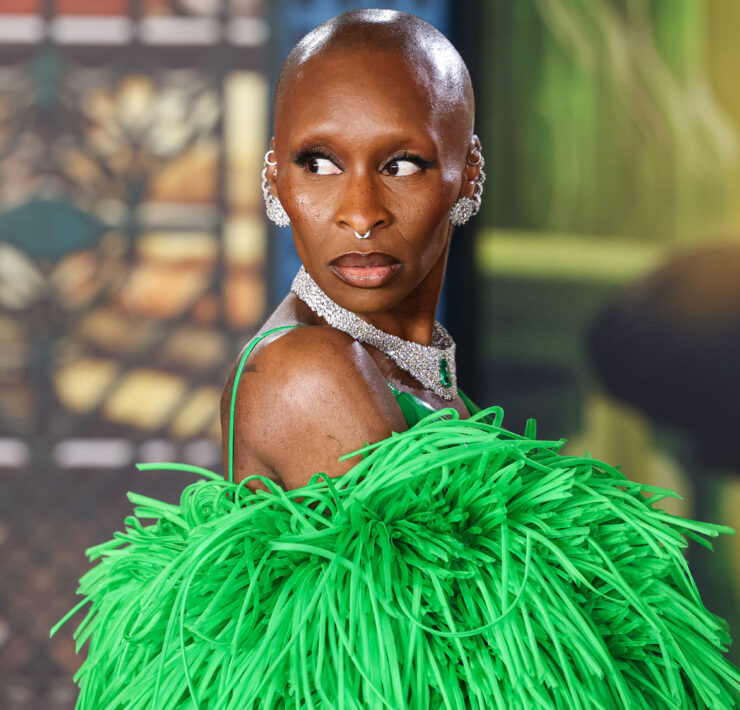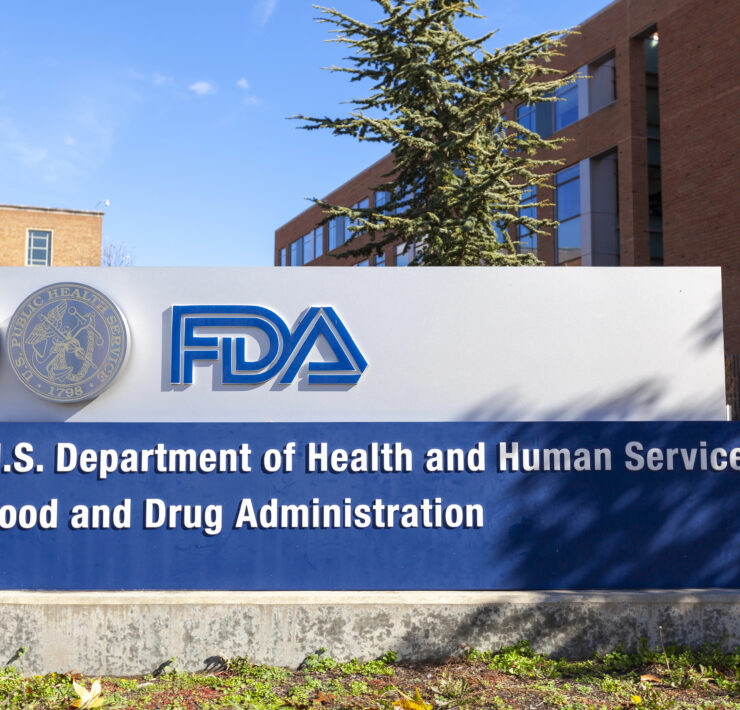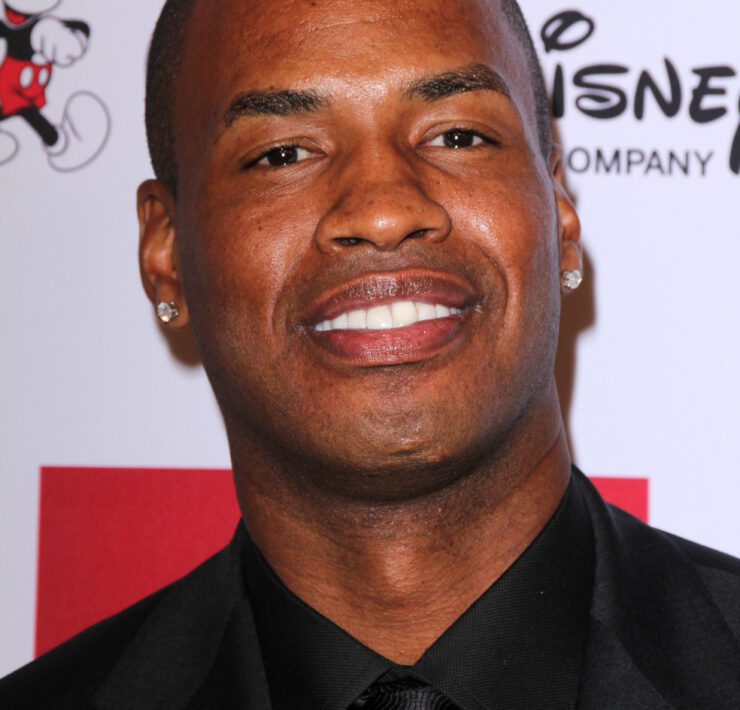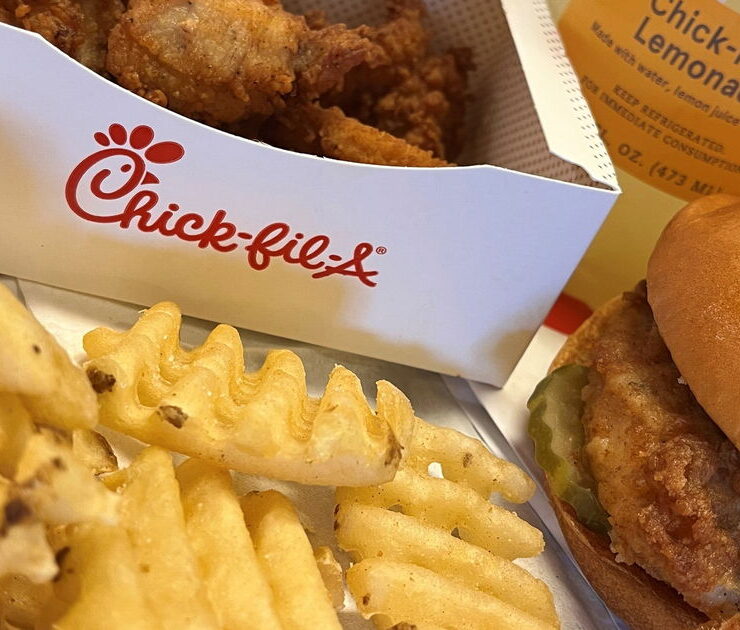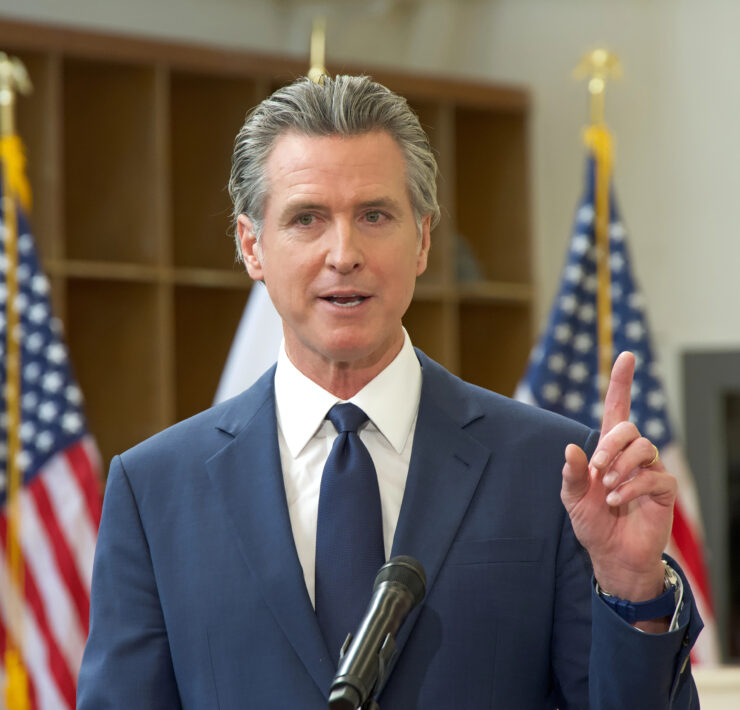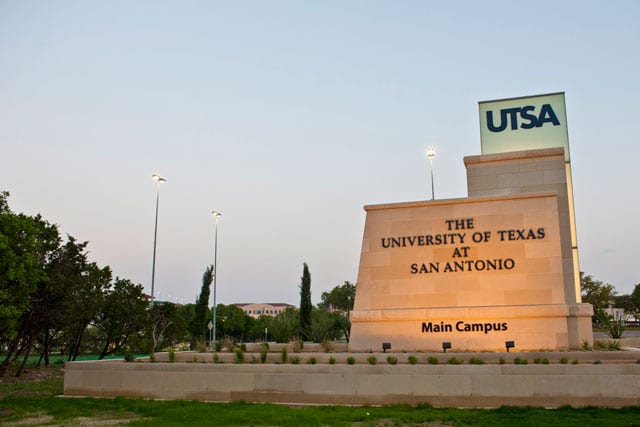Wilson Cruz Continues the ‘Star Trek’ Legacy of Queer, Diverse Representation

Denny Patterson is a St. Louis-based entertainment and lifestyle journalist…
Since Wilson Cruz first appeared as openly gay teenager Rickie Vasquez in the 90s hit show My So-Called Life, he has become a trailblazer for LGBTQ representation in film and media.
The Brooklyn-raised, Puerto Rican actor has given voice to a new generation of storytellers, and his characters have reflected the struggle and success of the LGBTQ community. Some of his notable roles include Angel in Broadway’s Rent, Junito in Noah’s Arc, Victor in Party of Five, and Dennis in 13 Reasons Why.
Currently, Cruz is playing Dr. Hugh Culber in Star Trek: Discovery on CBS All Access. Along with co-star and personal friend Anthony Rapp who plays Lt. Paul Stamets, they represent the series’ first openly gay couple. According to Cruz, this has been a long time coming.
Cruz took some time to chat with OUT FRONT about the new season of Star Trek, in addition to his political and social advocacy for LGBTQ youth, and how television helped start a conversation and change the public’s perception on the LGBTQ community.
Hi, Wilson! Thank you for taking some time to chat with me. How are you doing during these unprecedented times?
We finished season three of Star Trek right at the end of February, and then I had to go on the Star Trek cruise. So, I was on a cruise ship until March 8. I literally finished the cruise and then flew to Los Angeles just in time to close the door behind me. You know, I am single and childless, and my entire, immediate family lives on the East Coast. Here I am in Los Angeles by myself, and I’m not going to lie, it was a test of my mental health.
I think the way that I got through it was making concerted efforts to reach out. I even started an Instagram Live story where I checked in with folks and had them check in with me. I did it bi-weekly and brought in friends like Billy Porter and Kristen Chenowith to come in and talk. I hope it helped people get through those difficult weeks. I do have to say, between that and great books and getting caught up on all the television that people who make television never get to watch, I made the best of it.
Good! I am glad you are doing well. Now, the new season of Star Trek: Discovery just premiered last month. What’s in store for audiences?
For those people who have been paying attention, at the end of season two, we went 930 years into the future. So, at the beginning of season three, we are in the year 3188, and it is a whole new world for our series because we are no longer bound by Kamran, and we get to create the future that we want to see. What comes with that is all the effort that it takes to create this idealistic future that we would all like to see.
As far as my character is concerned, he’s been through a lot. Most of season two was about him coming back into the world and trying to figure out who he is now and what his relationship with Paul Stamets is. In season three, we see that he is really taking advantage of the fact that we are in this new future. It allows him to create a second chance for himself and to create the life that he always wished that he led. You see him take on new responsibilities on the ship and take on people’s mental health as they embark on this new future where they have left behind everything and everyone that they have ever known. He steps up, and I am excited for people to see just how genius he is.
What makes Star Trek: Discovery unique and worthwhile? Why should we watch it?
So many reasons! I think more so than ever in season three, we are presenting the inhabitants of the world as it is. So much is being made of Hollywood and the media’s attempt to diversify, to have a more diverse representation in their cast. My thing is, I think it takes more effort not to include everyone, so we are just presenting the world as it is.
When you turn on Star Trek: Discovery, you are going to find someone who you can relate to because there is bound to be somebody who represents you in the show. It is exciting to see them work together to save the world. What’s exciting for me personally is that young people can turn on this show and see people of color, see LGBTQ people who are masters of their own fate and geniuses in their own right.
We are all capable of being superheroes, and that is what’s amazing about Star Trek. These people don’t have otherworldly abilities. They are not superheroes in that way, but they are superheroes in the sense that they use science and math to change the world. I think that is important for people to see.
We are all capable of being superheroes, and that is what’s amazing about Star Trek. These people don’t have otherworldly abilities. They are not superheroes in that way, but they are superheroes in the sense that they use science and math to change the world. I think that is important for people to see.
What do you enjoy the most about playing your character, Medical Officer Hugh Culber?
So many things [laughs]. What I love about him is his ability to be authentic and vulnerable. Not only does he allow himself to go there to be present and vulnerable, but he allows other people to do it as well. People open up to him and allow themselves to trust him because of the fact that people believe that he is there to help and understand them. I am excited that people are going to see a new side to Hugh. So much is happening in this season with him. He is finally fully accepting this new body and new life. I am so excited for people to meet him.
You have said portraying the first openly gay couple in Star Trek was a long time coming. How so?
Like I was saying earlier, we want to show the world as it is, and in that world, LGBTQ people exist. When you are creating a show that is depicting a future, an idealistic future, I think it is hurtful not to include LGBTQ people in that vision. It has been a long time coming when you think about the fact that it took 52 years for LGBTQ series regulars on Star Trek to show up. I am glad we are getting to carry the flag. In this season, we get to expand on representation of LGBTQ people with our two new cast members, Ian Alexander and Blu del Barrio.

We want to show the world as it is, and in that world, LGBTQ people exist. When you are creating a show that is depicting a future, an idealistic future, I think it is hurtful not to include LGBTQ people in that vision.
It is very exciting that Star Trek is bringing in these new LGBTQ characters. Do you believe the sci-fi genre is getting better when it comes to LGBTQ representation?
I think there is definitely an effort on behalf of creators. LGBTQ rights are at the forefront, and it is a conversation that our culture is having. I think sci-fi helps us have that conversation in a comfortable way, perhaps presents an analogy or parallel that invites people to consider these issues. I think that it is getting better, and we are for sure, definitely taking up the mantle.
Hugh’s lover interest is Paul Stamets, who is played by Anthony Rapp. You two performed in Rent together. I assume the chemistry was already there?
[Laughs] Yes. Anthony and I actually talk about it a lot. I think when you are hired to play somebody’s longtime partner, you have to kind of go out of your way to get to know them and see where you can create a relationship to extrapolate from. Our relationship, we had 22 years of friendship to build on. So, we just took our friendship and based our characters’ relationship on that relationship between us for decades. It helps that I have such respect for him as an actor, a person, an activist, and an advocate. Going to work with one of your friends is the best-possible scenario.
Have you always been a Trekkie?
I was a big Next Generation person. Obviously, I was familiar with the original, but I didn’t really start watching Star Trek until Next Generation. After that, I was obsessed and started going back and watching some of the originals. I wouldn’t classify myself as a Trekkie, but I was definitely a big fan. I think you have to earn the title of Trekkie.
If you could travel anywhere in space, where would you go?
Hm, I want to go to Saturn. I want to see the rings, and I also want to go and sing the Stevie Wonder song while I’m there!
What other sci-fi/superhero/comic book stories are you a fan of?
I am excited to see where the next Green Lantern goes. I also had the chance to recently voice Superman for the Creative Coalition for the DC fandom, and that was so much fun. It was for the radio show, and that kind of radio style really asked for us to really go for it. It was fun to step into that cape for a second, even if it was just vocally.
I am a huge fan of sci-fi and fantasy. I grew up watching it. I am a big Spider-Man fan, especially after the last animated series where they made Spider-Man half Puerto Rican, half African American, and a young man. My whole family and I went to watch it.
Besides acting, you are well-known for your advocacy on behalf of LGBTQ youth, especially youth of color. Why is this such a big passion of yours?
Growing up in the 80s and 90s as a young, gay man was difficult, just given the circumstances that we were living under with that pandemic and all the discrimination that was present because of it. I was lucky enough at 19 to play the first openly gay teenager on network television. I think because of that, I felt a deep responsibility to be able to give voice to a generation of LGBTQ people who were growing up and insisting on the recognition of their humanity.
Even though I am not a young person anymore, I do sit on the board of GLSEN, and I am very aware of how difficult it still is to be a young, LGBTQ person right now. I think it is important for people in my generation to reach back and stand up for them. We have the right to vote; we have the financial means to donate; we have the ability to make their lives better. So, why don’t we? When I think about young, LGBTQ people, I think about the fact that I don’t have kids of my own, but I want to leave the world a better and easier place for them to live in.
Was playing Rickie Vasquez in My So-Called Life your very first role?
No, but it was my very first series regular role. I got my SAG card by doing an episode of Unsolved Mysteries, then the very next season, I did a recurring role on a short-lived Fox series starring Tobey Maguire called Great Scott! Then, because of that, the very next year, I got My So-Called Life.
Did you have reservations about accepting the part of Rickie? Were you ever afraid that playing an openly gay character could prevent you from being cast in future roles?
No, I didn’t. Let’s be honest. I was a 19-year-old, Puerto Rican boy fresh out of high school, still in college, and there was nothing in my story to lead me to believe that I would ever be as successful as I ended up being as an actor. Everything pointed toward never making it, struggling, and not getting the same opportunities as my white counterparts.
I didn’t expect to get a series so quickly, so I didn’t hesitate at all. If anything, I felt that I was being gifted an opportunity to not only play this role, but to represent my community, give voice to a generation, and speak to LGBTQ rights on a national stage. So, I was very excited. I wasn’t nervous. I was excited. The one thing I was nervous about was the fact that I still had to come out to my parents.
And this show encouraged you to come out?
I came out because of the show. I came out to my parents because I was about to start the show, and I knew that I was going to talk about myself and LGBTQ rights publicly. So, I should probably tell them.
After you came out, you and your mom were OK, but your relationship with your dad became rocky. Are you two OK now?
Oh, yes. We are great. I am very proud of my mother because she was so supportive right away. I feel like I don’t give her enough praise because she didn’t have to get over as much as my father did, but my dad really stepped up. He had to really let go of all the ignorance he had been taught in the Catholic Church and the machismo culture in Puerto Rico. He did it because he loves me, and that’s what fatherhood calls for. He’s amazing.
That is great to hear. How big of an impact do you think Rickie made on LGBTQ youth at that time?
I don’t know if that’s for me to say, but I can say, and this is the honest-to-goodness truth, every single day, I get a message from somebody on social media or somewhere thanking me for playing that role and everything that role did to them. In my view, it was a milestone for a lot of people to see yourself in that way, but I will leave it to other people to say.
Earlier this year, you produced a docu-series with Wanda Skyes called Visible: Out on Television. For those who are not familiar, can you tell us more about it and how it has been received?
This was seven years of my life. David Bender created the concept and had been working on it for years. He brought me on because he wanted to interview me; then I came on as a producer because I knew so many of the people that he needed to interview. Visible is about the history of LGBTQ images on television and how those depictions changed our culture, but also how those depictions changed TV and the way TV was used to have a conversation about LGBTQ rights.

We start in the 1950s, from the inception of TV to present day. Almost every single person you could possibly think of is in the film, and this is my love letter to television and to the people who risked everything in order to tell our story. It is a five-episode series; each episode is an hour, and it has been incredibly well-received. It is critically acclaimed across the board, and I could not be prouder of the fact that this is my first executive producer credit. I think that says a lot about who I am and the kind of material that I want to put out in the world.
It is truly amazing to see how important TV has become in changing the public’s perception of the LGBTQ community.
Yes. I think when you have a medium as intimate as television that lives in people’s living rooms, bedrooms, and the most intimate places in their homes, it became this tool in which we could present ourselves, tell our own stories, and tell the truth about who we are. Many of us understood that there was so much disinformation about LGBTQ people and our actual lives. I think television in many ways was the driving force in terms of leading the conversation around LGBTQ rights, especially through the 90s to present day.
What is your opinion on straight actors playing LGBTQ roles?
It’s not that I have a problem with straight actors playing LGBTQ roles. My only preference is that when an LGBTQ person plays an LGBTQ role, there is something that is inherent and genuinely felt and authentic in that performance. There is something about being LGBTQ that I don’t know if you can act. I think it is something that you are, and I think that is true for a lot of things. So, my own preference is to see LGBTQ people play these roles, but because there is such a lack of opportunity for LGBTQ artists, we should at least be able to tell our own stories.
What more do you hope to accomplish with your platform?
I want to continue to tell great stories on Star Trek, but I am also looking to develop my own material. When I think about the kind of story I want to tell, I want to produce content that looks like us. That actually looks like us, and I want to give voice to the marginalized and invisible people in our culture.
Those are the kind of projects that I want to be involved with.
To stay up-to-date with Cruz, follow him on Instagram and Twitter @wcruz73. Star Trek: Discovery is available on CBS All Access with new episodes of season three dropping every Thursday. Visible: Out on Television is available on Apple TV+.
Photos courtesy of James Dimmock and Michael Gibson
What's Your Reaction?
Denny Patterson is a St. Louis-based entertainment and lifestyle journalist who serves as OFM's Celebrity Correspondent. Outside of writing, some of his interests include traveling, binge watching TV shows and movies, reading (books and people!), and spending time with his husband and pets. Denny is also the Senior Lifestyle Writer for South Florida's OutClique Magazine and a contributing writer for Instinct Magazine. Connect with him on Instagram: @dennyp777.



